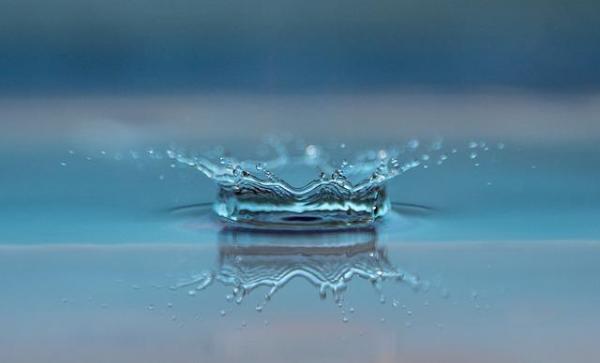
Dogs are susceptible to contracting many diseases that also affect us, since there are very few diseases that can only be diagnosed in humans. As your dog ages, there will come a time when you must pay closer attention to its care and plan some dietary and hygiene measures. This done with the end goal of preventing common diseases among older dogs and improving your dog's quality of life. If your dog suffers from kidney problems you need to offer it a specific dog with renal failure diet.
Kidney problems are common in dogs, making it very important to be aware of the symptoms of kidney disease in dogs and know how to ease it. This is why in this AnimalWised article we'll go over the best food for dogs with kidney failure problems.
Dogs with kidney disease
Like us humans, a dog's kidney aim to filter out the body's waste through urine. Kidneys are also responsible for balancing out the body's blood pressure and electrolytes. In addition, a dog's kidneys aim to:
- Promote red blood cell production.
- Maintain salt and water concentrations.
- Help a dog's calcium metabolism.
- Keep up phosphorous levels.
With all of these responsibilities and considering the necessary function of a dog's kidneys, if they fail it can result in severe illness.
A dog can suffer from acute or chronic kidney failure. Acute kidney failure can often be treated. Chronic kidney failure in dogs, however, only shows symptoms after a period of time and is more difficult to diagnose. For more, we recommend reading our article on kidney failure in dogs: symptoms and treatment.
Dogs with kidney disease: symptoms
In order to offer your dog with kidney failure the adequate diet, it is equally important to be aware of the symptoms of kidney failure in dogs. Dogs with kidney disease symptoms include:
- Polyuria: A dog urinating more is one of the most common symptoms of kidney disease, but it can also be the case that the dog stops urinating completely (anuria).
- Poldipsia: to compensate for the elimination of fluids, the dog drinks more water.
- Vomiting and diarrhea, sometimes even with hemorrhage.
- Blindness.
- Dehydration.
- Thinning and, in general, poor appearance, poor body condition and muscle weakness.
- Anorexia.
- Ulcers in the oral cavity and/or bad smell.
- There may also be ascites (fluid accumulation in the abdomen) and edema (fluid in the extremities).
- State of shock and, in the last stages, coma.
If your dog is suffering kidney damage, it's important to be able to spot whether it is acute or chronic. The symptoms vary depending on whether kidney failure is acute or chronic:
Symptoms of acute kidney failure:
- Complete loss of appetite
- Lethargy
- Vomiting
- Reduction in urine production
- Disorientation
- Uncoordinated movements
- Physical weakness
Symptoms of chronic kidney failure:
- Reduction in urine production
- No urine
- Bloody urine
- Poor quality fur
- Vomiting
- Diarrhea
- Hunched posture
- Bad breath
- Mouth sores
- Dehydration
- Weakness
- Swelling as a result of fluid retention
Kidney failure is a serious condition in dogs since it affects a vital organ, and as such it requires urgent treatment. This treatment will include changes in your pet's normal diet.
Kidney failure in dogs: diet
As we already mentioned, kidney failure in dogs can be acute or chronic. The acute form can carry a high risk of mortality, although it is reversible. Chronic kidney failure, however, entails irreversible kidney tissue damage.
Under normal conditions, the toxins that circulate in the blood are dissolved in water through the kidney, and are then duly filtered and subsequently excreted via urine. However, with kidney failure the kidney requires a greater quantity of water in order to excrete the same amount of toxins. There comes a point in which maximum hydration isn't sufficient for the kidney to withstand the normal workload, and the toxins in the bloodstream increase.
Many of these toxins come from the environment, while others come from the metabolism of particular nutrients such as proteins; this process generates ammonia, a toxic substance that needs to be converted into urea in order to be excreted through urine.
As always, food is one of the most influential factors for health. Diet is particularly important for dogs with kidney failure, so you should avoid certain foods and make sure that your friends receives enough calories for to maintain its body weight.

Dogs with kidney disease: diet
When giving food to dogs suffering with kidney failure, the main aim is to reduce the workload of the kidneys. This is because now a dog's kidneys are no longer able to adequately filter all toxins and keep the dog at a healthy weight. By doing this one aims to prevent a state of malnutrition in the dog.
A dog with renal failure diet should meet the following requirements:
- It should be low in sodium and phosphorus.
- The diet should contain proteins of high biological value - rich in essential amino acids - but in moderate portions.
- Hydration should be of optimum importance. As such, the dog should always have fresh and clean water available, and it will have a preference for wet food.
A diet that meets these principles can be given both through dog food - or homemade dog food, with much debate existing over which is the best method.

Dog kidney disease diet: homemade
There are specific dog foods that are perfectly suited to the nutritional requirements of dogs with kidney failure. However, some experts believe that the best food in such cases is that made at home, and that dog food should only be offered as a supplement.
It's important that you seek advise from the vet. A professional will be able to advise you on how to give your dog the best food for kidney failure whilst taking into account your dog's individual case.
If the decision is finally made to feed your dog with renal failure homemade diet, you should avoid incorporating these below mentioned foods; owing to their high levels of phosphorus. Don't give a dog with kidney failure:
- Milk and dairy products
- Fish
- Pig liver
- Chocolate
- Walnuts
- Legumes
- Eggs
- York ham
- Bacon
- Sausage
On the other hand, the following foods should be included in your dog with kidney disease homemade diet:
- Boiled rice
- Chicken
- Carrots
- Very lean beef
- Peas
In any case, it will be the vet or canine nutritionist who will you exactly how to provide your dog with all the nutritional requirements. This can be done through dog kidney failure diet recipe, traditional store-bought dog food or a home-made dog food diet, adapted to your dog's specific case[2].
For more, we recommend reading our article on: homemade diet for dogs with kidney failure.

Dog with kidney disease not eating
If your dog is suffering from kidney disease, has been offered the above dog kidney failure diet recipe and is still not eating: consult a veterinarian immediately. A veterinarian dealing with a dog with kidney disease not eating might provide your dog with an appetite stimulant and/or fluids.
Dog with kidney disease life expectancy
Kidney disease in dogs is more common in older dogs. The life expectancy for a dog with kidney disease will depend on whether the kidney disease is acute or chronic. Additionally, life expectancy for dogs with kidney failure will depend on the dog's specific case, breed, size and treatment. Offering a dog with kidney failure the adequate diet will not cure the problem, but it can help your dog live a more comfortable life. For more on your dog with kidney disease life expectancy, consult your veterinarian.
If you want to read similar articles to What Foods Should A Dog With Kidney Disease Eat?, we recommend you visit our Homemade diets category.
2 https://veterinaryrecord.bmj.com/content/174/14/352.2